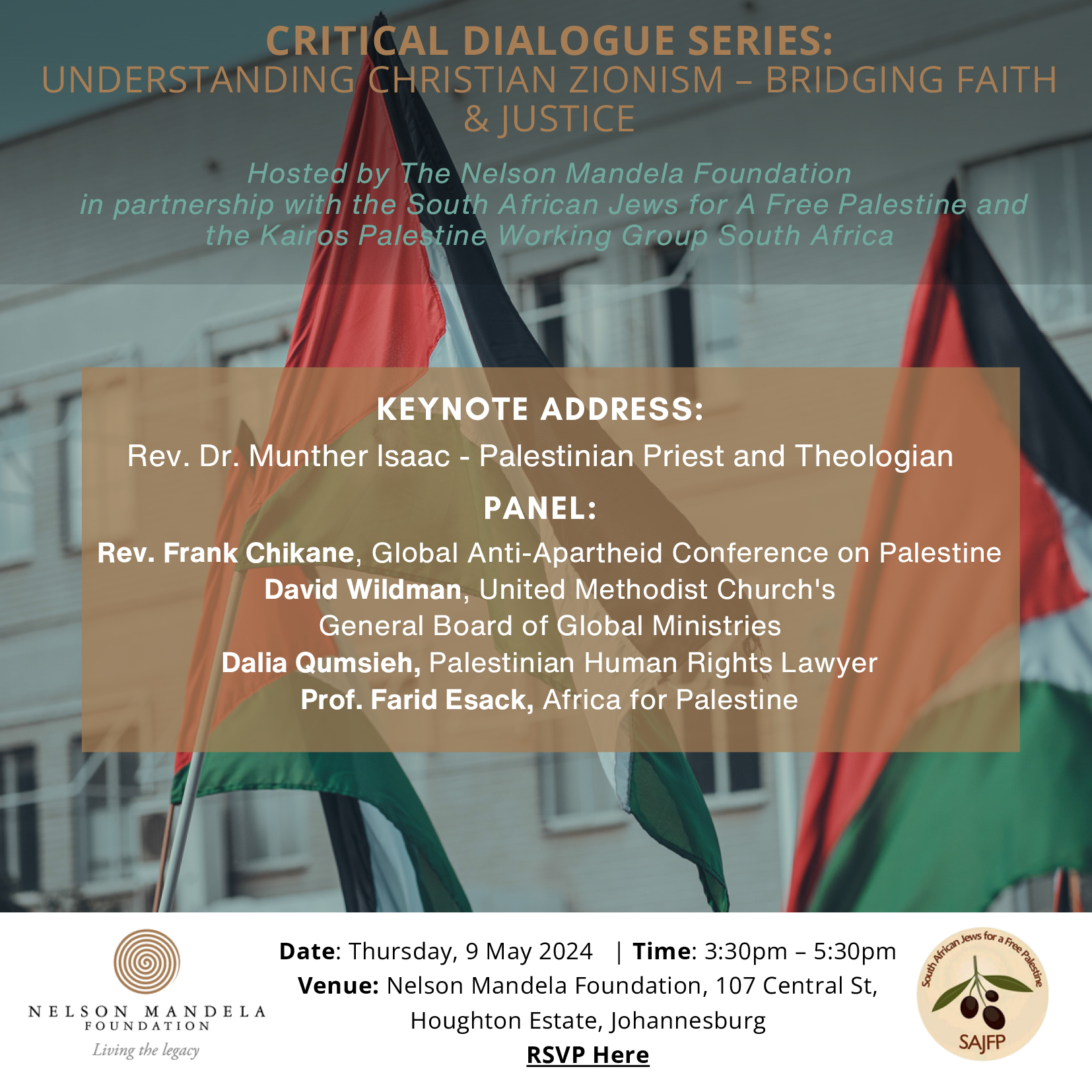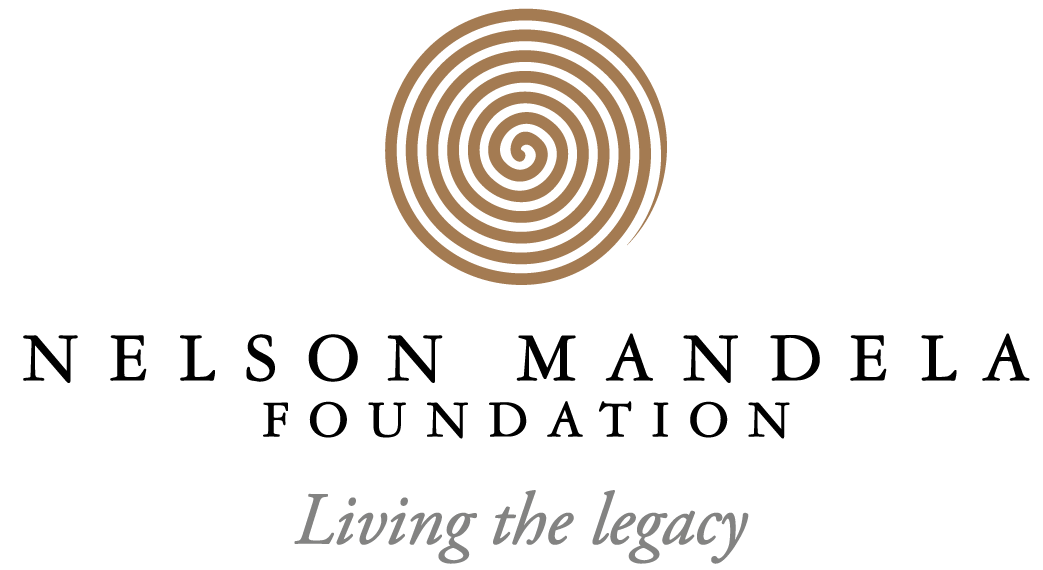
Critical Dialogue Series: Understanding Christian Zionism – Bridging Faith and Justice
In recent months, and in the context of wanting to promote a lasting peaceful solution, the Nelson Mandela Foundation hosted a series of engagements on Palestine. Through these engagements, a common thread which emerged is that of Christian Zionism and the ways in which Christian Zionism plays a significant role in advancing and protecting Israel to the detriment of Palestinians.
Christian Zionism is articulated as the belief among some Christians that the return of the Jews to the Holy Land, and the establishment of the State of Israel in 1948, is in accordance with Biblical prophecy, and is necessary for Jesus to return in the Second Coming. Genesis 12:1-3 and 15:18, along with Deuteronomy chapters 6 and 7, play a significant role in this understanding. Genesis includes promises made to Abraham personally and to his descendants, who were meant to become a mighty nation and inherit the land of Canaan forever. Deuteronomy, specifically chapters 6 and 7, underscores God's command to the Israelites, after their release from Egyptian slavery, to conquer the Canaanites, claim their territory, and decimate their people.
This position is actively contested within the Christian community by numerous Churches and theologians. While some do affirm the passages outlining the return of God’s people to the Holy land, they contend that this does not exclusively refer to the Jewish people but rather all nations of the world. Apart from theologians, many ‘ordinary’ Christians themselves – seeing the devastation that is unfolding in Gaza and the oppression in other parts of Palestine – are questioning the use of religion as a justification for the carnage they are witnessing. This is especially true for Christian South Africans who lived through Apartheid and who experienced firsthand the ways in which Christianity was misused to advance Apartheid in South Africa and the subjugation of Black people.
Although international and local support for Christian Zionism has played a role in enabling, sustaining and justifying the Zionist project in Israel, this subject matter remains largely unaddressed in public discourse.
The aim of this dialogue is to foster a reconciliation between faith and justice, by providing a space to explore Christian Zionism as we aspire to cultivate a collective recognition of our shared humanity.
